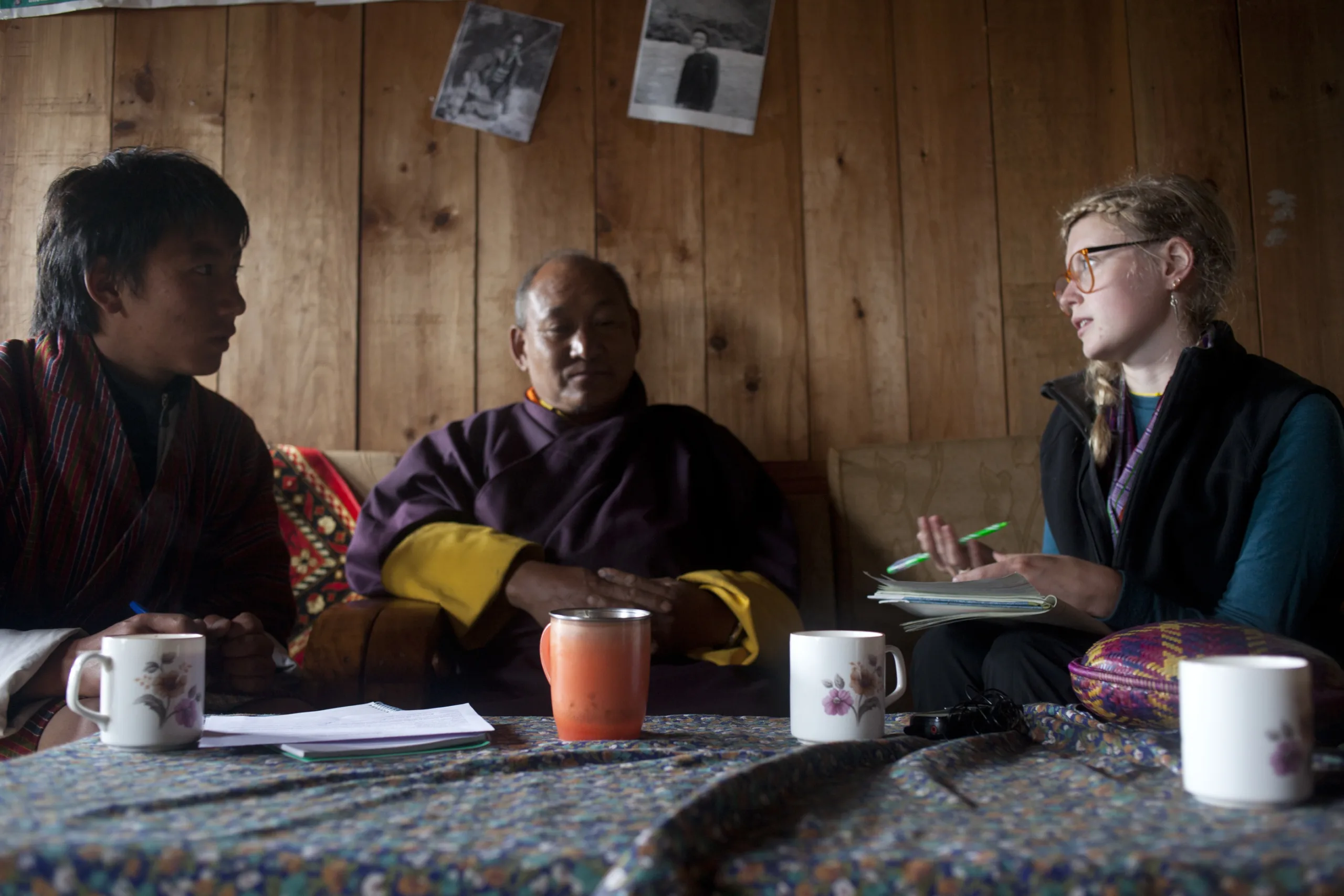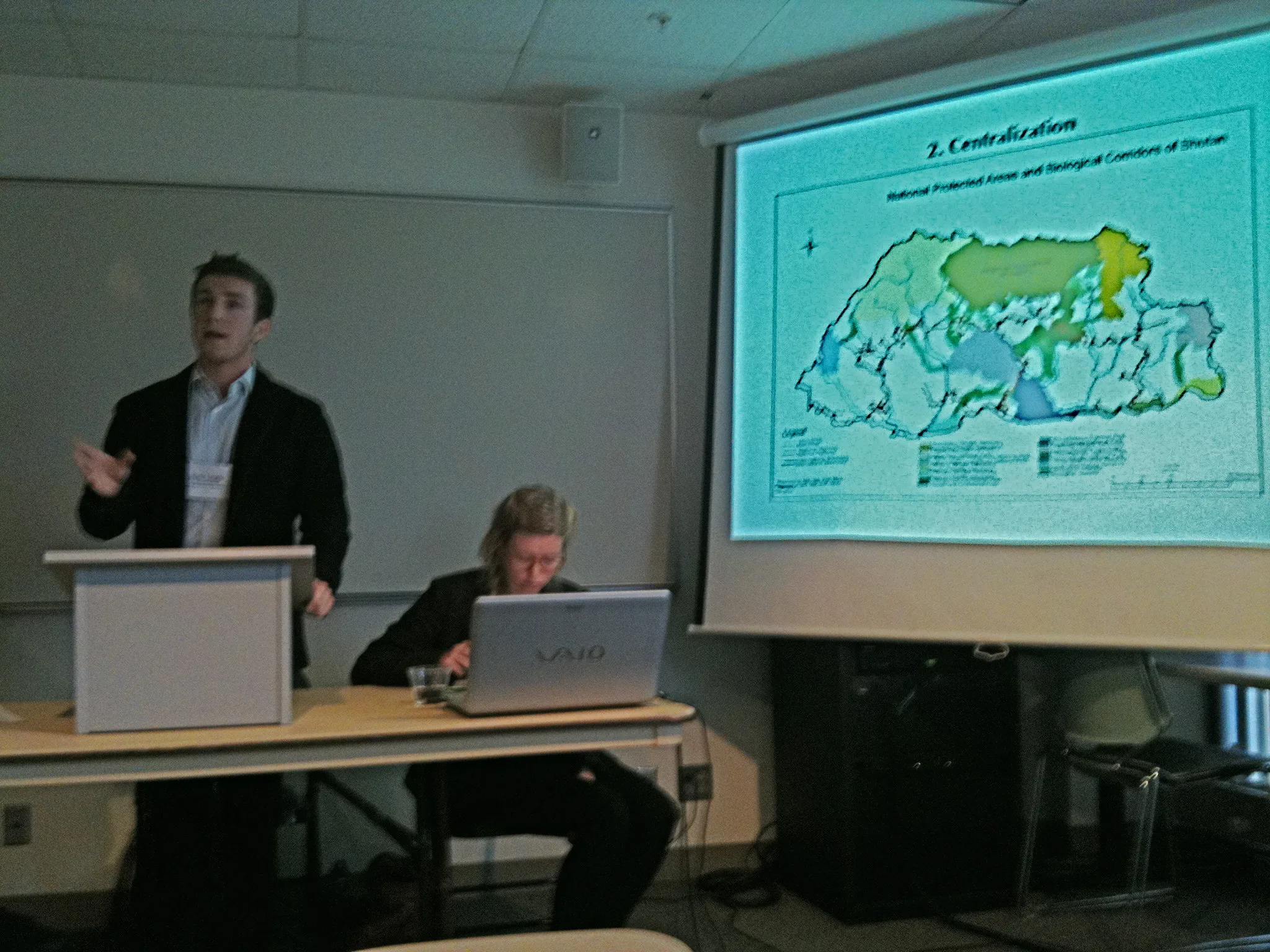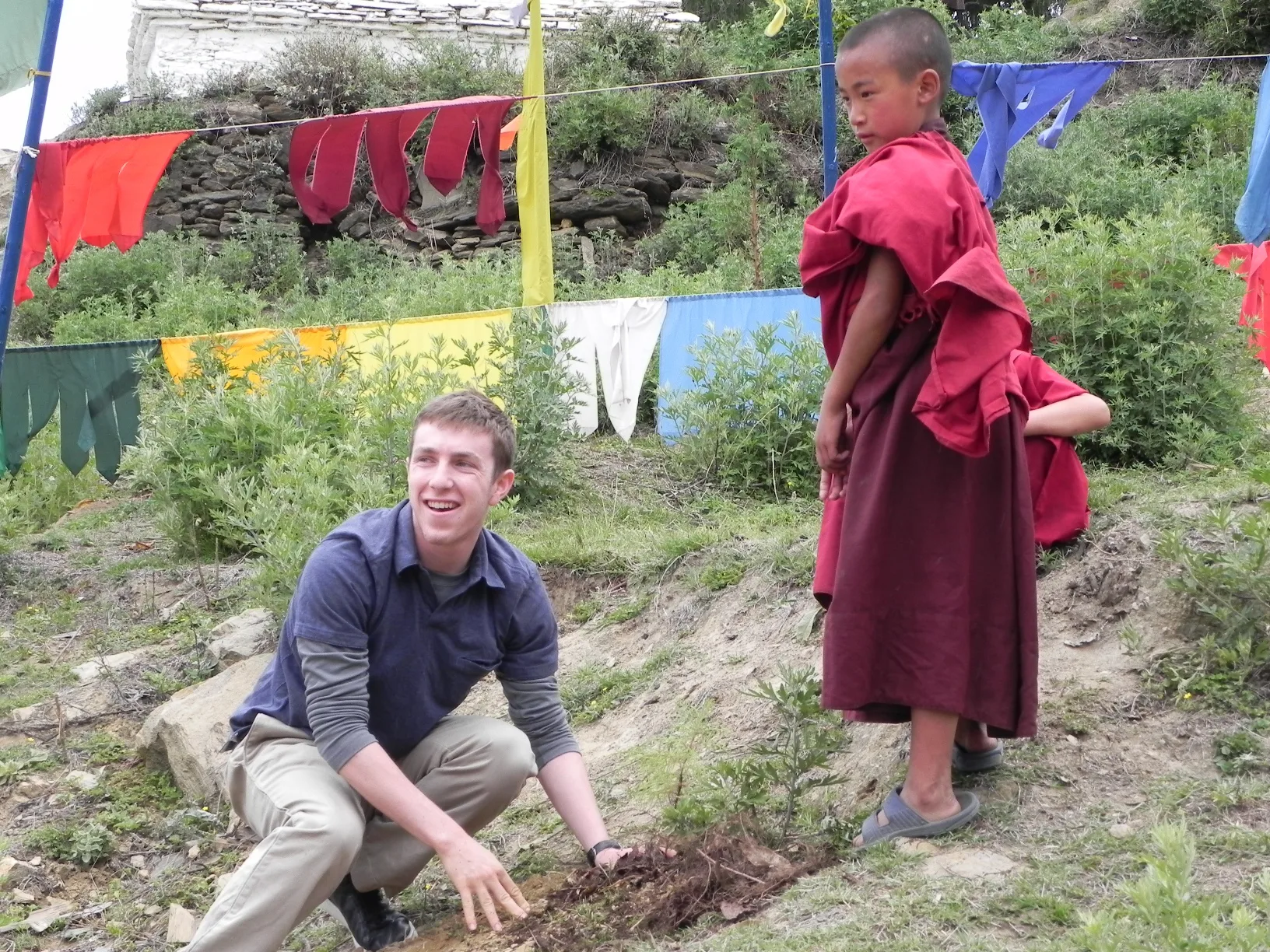Alumni & Dean Team Up for Himalayan Studies Conference
When I signed up for The School for Field Studies (SFS) Bhutan program in 2010, I knew I was in for the journey of a lifetime. I could go on and on about the program itself – the breathtaking monasteries we visited, the inspiring guest lectures we attended, the wild ecology both tropical and temperate, and the lifelong friendships made, etc. I am more interested, however, to report that since attending the six-week program two summers ago, my relationship with SFS Bhutan has evolved from student to research associate.
I traveled to Bhutan with an interest in conducting research for my thesis in Environmental Studies at Brown University on how environmental policies in Bhutan influence and are influenced by Buddhist culture. I was able fit my broad research interests within the research agenda of SFS and their research partners at the Ugyen Wangchuk Instittue for Conservation and Environment (UWICE), a government research organization in the initial stages of a long-term research project on community forestry. Building off the participant observation, archival research, and 33 interviews I conducted with my SFS-UWICE research team, I wrote a 192 page thesis through which I received Honors in Environmental Studies at Brown University.

After returning from the Bhutan program this past summer, Robin Sears, the SFS Bhutan Program Director and Dean of The School for Field Studies, contacted me with interest in collaborating on an academic paper. Apparently, Bryce Rosenbower, a student at Hamline University, conducted almost identical research while attending the 2011 Bhutan program. Together with Sonam Phuntsho, an official from UWICE leading the community forestry research project, Robin, Bryce, and I have pooled together our data sets to co-author a paper entitled, “The Translation and Negotiation of Traditional and Scientific Systems of Knowledge in Bhutanese Community Forestry.”
Our paper explores the impact of implementing community forestry on systems of environmental knowledge in Bhutan. Specifically, we ask what forest knowledge is being transferred through community forestry initiatives, how it is transferred, and how the local and introduced knowledge systems are interacting. Historically, Buddhist cosmology, coupled with local environmental and social realities have largely determined villagers’ management strategies and value systems in relation to their local ecology. However, our findings suggest that the introduction of new authorities, language, and management approaches through community forestry has translated traditional and Western scientific epistemologies in the making of emergent environmental subjectivities in Bumthang, Bhutan.

Bryce and I were invited to Macalester College to present our research at the First Himalayan Studies Conference co-hosted by the Association for Nepalese and Himalayan Studies and the Midwest Council on Asian Affairs. The only undergraduates in attendance at the conference, we were honored to present alongside two professors and a Ph.D. candidate at the conference’s only panel on Bhutan. I knew our work was special, but did not realize until the conference just how unique our research truly is. Experts on Nepal, Tibet and Indian Himalaya approached us often throughout the conference asking about our work and how we managed to do research in Bhutan, and we were delighted to sing the praises of SFS and UWICE! Currently, we are incorporating feedback received from our peers at the conference into a final draft that we plan to submit to the respected academic journal Himalaya.

My experience with SFS has set me on a path of personal and professional growth, and I am now excited to pursue a career doing environmental policy work in South and Southeast Asia. At multiple informal reunions organized by SFS Bhutan 2010 alumni, many of whom I now consider close friends, we have discussed the possibility of returning to Bhutan together to teach English. It is clear to me that all of us continue to dream about our program, a year and a half later. I strongly recommend the SFS Bhutan program to any student interested in the environment, development and/or South Asia. Who knows what doors it will open for your career and for your mind?
Related Posts

Reuniting with Tanzania: Eric Walsh’s “Reunion Flag” Keeps the Spirit Alive

Restoration on a Cinder Cone: A Syntropic Story
